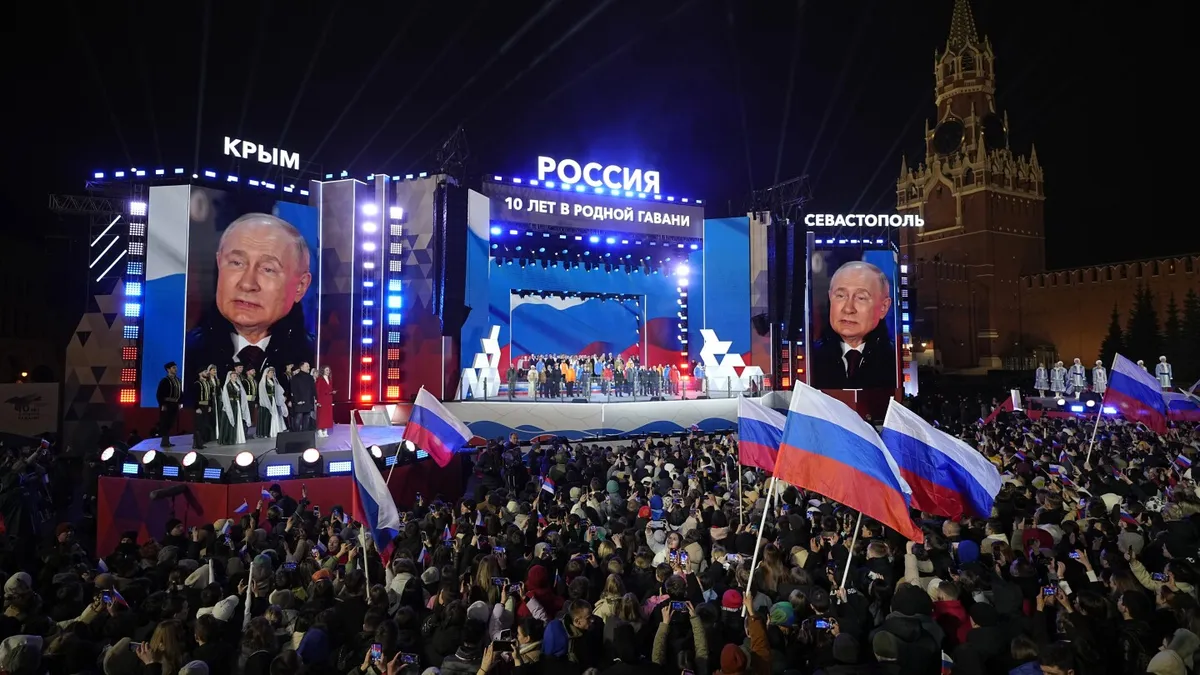
In a recent turn of events, a peace proposal by the Trump administration has caused significant shockwaves among Ukrainian officials. The proposal suggests recognizing Russian authority over Crimea, a move that Ukraine vehemently opposes. Ukrainian lawmakers and the public have made it clear that they will not accept any formal surrender of the peninsula, which was illegally annexed by Russia in 2014. Despite the ongoing conflict, Ukraine is expected to concede the territory to the Kremlin, at least temporarily, but the political and legal implications of such a move are complex and fraught with challenges.
Experts assert that relinquishing Crimea is politically and legally impossible for Ukraine. It would necessitate a change in the Ukrainian constitution and a nationwide vote, both of which could be interpreted as acts of treason. Lawmakers and citizens alike are firmly against the idea of conceding territory. Oleksandr Merezkho, a lawmaker affiliated with President Volodymyr Zelenskyy’s party, emphasized, “We will never recognize Crimea as part of Russia.” A formal surrender would not only permanently cede Crimea but would also extinguish any hope of reclaiming it in the future.
While the Ukrainian public largely understands that some territorial concessions may be necessary for peace, they also desire assurances that such concessions will not be permanent. Kyiv Mayor Vitalii Klitschko recently mentioned that Ukraine might need to temporarily cede land as part of a peace agreement. This approach aims to avoid the perception of defeat, especially for Ukrainians living under Russian occupation who hope for eventual liberation.
U.S. President Donald Trump further underscored the controversial Crimea proposal in a recent Time magazine interview, asserting, “Crimea will stay with Russia. Zelenskyy understands that, and everybody understands that it’s been with them for a long time.” When asked if Zelenskyy was prepared to give up Crimea, Trump responded affirmatively, suggesting that the issue should be settled, as it had been a part of Russian control for over a decade.
Trump's remarks highlight the pressure on Ukraine to concede territory in order to facilitate peace negotiations while the country remains under siege. He has accused Zelenskyy of prolonging the conflict by resisting discussions with Russian President Vladimir Putin.
Crimea, a strategically significant peninsula along the Black Sea, was seized by Russia in 2014 amidst political turmoil in Ukraine. The annexation followed large-scale protests that led to the ousting of former President Viktor Yanukovych, who had rejected an association agreement with the European Union. In recent months, Ukrainian officials have indicated that they anticipate the relinquishment of Crimea and other territories occupied by Russia as part of any future peace deal.
Despite expectations of territorial concessions, President Zelenskyy has consistently stated that formally surrendering Crimea is a “red line” for Ukraine. Elements of Trump's peace proposal would involve the U.S. officially recognizing Crimea as Russian territory, a move that would significantly complicate diplomatic relations. A senior European official revealed that any recognition of Crimea as Russian territory is ultimately beyond Zelenskyy’s control, given the legal and political constraints facing the Ukrainian government.
Since the disappointing outcomes of Ukraine’s summer counteroffensive in 2023, the military has shifted focus to defending the territory currently under its control. In exchange for any potential territorial concessions, Ukraine seeks robust security guarantees, ideally encompassing NATO membership and concrete plans for arming and training its forces against future Russian aggressions.
Negotiations over occupied territories are expected to be prolonged and contingent upon a ceasefire. Zelenskyy has publicly stated that the question of territory will pose a significant challenge for the Ukrainian government. Legal experts, such as Tymofiy Mylovanov, president of the Kyiv School of Economics, warn that any attempt to formally recognize Crimea as part of Russia could expose Zelenskyy to legal ramifications and allegations of high treason.
The Ukrainian government faces considerable constitutional hurdles in accepting any violations of its territorial integrity. Alterations to the country’s territorial makeup would require a nationwide referendum, a process that could trigger extensive legal debates and political turmoil. Mylovanov noted, “This is all they want,” referring to Russia's strategic push for such concessions.
Despite the political complexities, soldiers on the frontline remain steadfast in their commitment to Ukraine's sovereignty. “We lost our best guys in this war,” said Oleksandr, a soldier in the Donetsk region. “We won’t stop until all Ukrainian lands are free.” This sentiment reflects a deep-seated determination among Ukrainian forces to resist any political decisions that might compromise their territorial integrity.
As discussions surrounding potential peace deals continue, the future of Crimea and other occupied territories remains a contentious and sensitive topic, underscoring the intricate balance between diplomacy and national integrity in the ongoing Ukraine-Russia conflict.